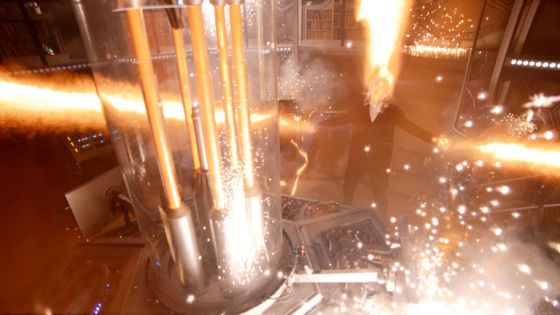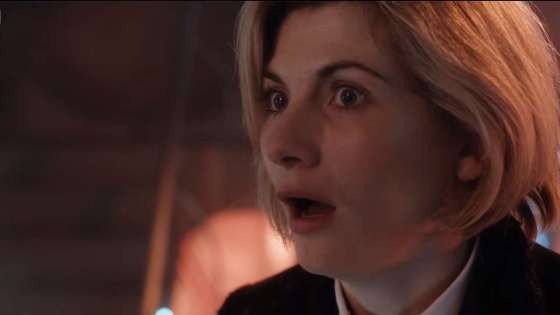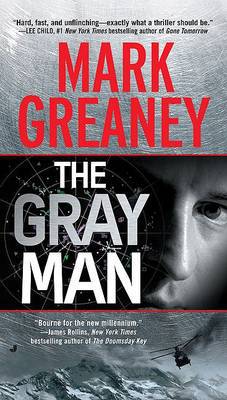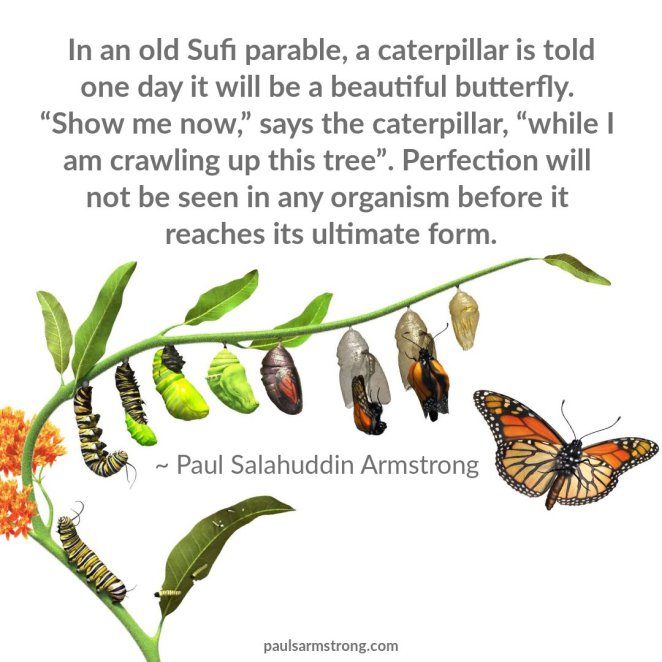Written by Dan – Thoughts on Doctor Who ‘Twice Upon a Time’, 2017’s Christmas episode which bids a fond farewell to Peter Capaldi’s era as the Doctor, and introduces our new Doctor, Jodie Wittaker.

“Never be cruel, never be cowardly, and never ever eat pears! Remember, hate is always foolish, and love is always wise. Laugh hard. Run fast. Be kind. Doctor, I let you go” – Doctor.
Capital’s farewell, is possibly one of the most beautiful and heartfelt regeneration goodbye’s we’ve ever had from the Doctor. The regeneration has become a moment which almost goes beyond the series itself, it has become a platform in which a writer can make a statement and an actor is given the chance to say goodbye. As we move into 2018, Doctor Capaldi’s final remarks seem to sum up a pivotal movement of this year, and light the fire of a revolution for the new year.
Kindness has been a common theme for a number of films released this year; as briefly identified in my best to worst list: such as Wonder Woman, Paddington 2, The Last Jedi, and Logan to name just a few. Doctor Who is all about being kind, each episode, following the Doctor helping creatures great and small. ‘Twice Upon a Time’, is similarly a reflection on kindness, and a call for a revolution of selflessness. This episode is important, and it couldn’t have come at a better time, down to the simple fact that we live in a world which is incredibly unkind. You know as well as I do the state of the world we’re living in; with the brain-dead Donald Trump as president of America, Kim Jong-un the oppressive dictator of North Korea, divides in Europe, divides in gender, sex, race. The economic gab between the rich and the poor still horribly large. The gaps between the third and first worlds. The world in which we live is horrible. Politicians, and men in white shirts and ties are comparing penis size and shouting at one another at the expense of others. So what can we do to change things?
Well, we can at least be kind. We can help those around us, help those in need. Be kind, and don’t let the big-wigs win. The people in charge can be overthrown, and kindness and acceptance is the way in which we can being to change things. ‘Twice Upon a Time’, show’s us two Doctors, both hesitant of regenerating, hesitant of change. The Doctor making the decision to regenerate, is the realisation that change is a good thing. We may have built the idea that change is bad, but this is a very conservative outlook, an outlook which seeks to keep thing as they are: in the hovel. Kindness and change would appear to come hand in hand, we can choose to be kind by changing a situation which is forever the same, an oppressive system of a select few fighting for dominance over the other. Endings don’t have to be sad, they can be hopeful, they can be brilliant!
This is not in anyway to suggest that Doctor Capaldi was bad, in fact he was brilliant, one of the best Doctors we’ve ever seen. But as evil spreads, we demand new heroes, for the new problems. When we change, when things come to an end, when we move on, it can be intimidating and scary and sad, because there are people and their are memories which are good, people who’ve been kind to us. People we wouldn’t want to risk loosing through wider change. The thing we can forget is that when change comes about, the people we look upon fondly will still be remembered. They still play a part in our changing landscape. We can change, and we can challenge, this done’t make the people around us any less valuable. We will always remember them, we can always be kind, and in the words of The League of Gentlemen, “Sometimes you can’t go back, but you can visit”. A message which is presented through Bill, Nardole, and of course Clara. The glass Testimonies, are the memories of all life, of all of the Doctor’s friends. They appear fragile made of glass, but by the end of the episode prove to be resilient, they will always be there even when the Doctor changes and travels.
In this final episode the Doctor, as always, is kind. The Doctor seeks to save the Captain, and help Bill and his younger self as much as he can. We also meet other kind characters, we meet the Good Dalek once again, and the Testimonies who are as the Doctor discovers to be a race of glass creatures who are saving the memories of every living creature. There is nothing to be defeated in this episode, bar the misconceived concept that change is a bad thing. Captured perhaps most poignantly in the WWI Christmas Armistice. The Captain and a German soldier sit injured at the bottom of a crater in the middle of no man’s land, both clutching to life and pointing a gun at one another. They both want to get along, neither wants to die here in the mud, but one ‘has’ to shoot first. I can’t help but read this as the dick swinging big-wigs, both about to commit a selfish act to someone else’s misfortune. Forced into killing one another under the misconception of needing to fight to sustain things, they’re caught up in the thought that someone has to win. Of course though, they don’t really want to fight one another, not deep down. Then the singing begins and kindness is delivered on mass, and the two men place down their guns and shake hands.
Even the Doctor is caught up in the idea that there has to be good and bad, upon his discovery that the testimonies are not evil Doctor remarks that he doesn’t know what to do when ‘they’re’ not evil. For the Doctor then, the episode shows him to be a bit lost. We know he has the best of intentions, we know he is the good who fights the evil. But he’s lost, it’s time to change. The Doctor is remind that he needs to lighten up, and that not every day is always a battle. It’s time for regeneration.
I want to talk a bit about the fans. The Doctor’s younger self (David Bradley) and the Captain (Mark Gatiss), are quickly established as dated, and obsolete. They share in Carry On… quality jokes, which play off against Doctor Capaldi and Bill wonderfully, as the two of them never let the old guard with their remarks, constantly telling them off and encouraging them to view things a little differently. In many ways, not only does Bradley and Gatiss’s characters represent old who, but they also represent some members of the fan base. They represent a toxic masculinity, specifically the people who have been critiquing the announcement of Jodie Wittaker as the new Doctor.

Jodie Wittaker is the new Doctor, and I’m incredibly excited. I’m loving all the praise that Wittaker is receiving for taking up the role. There’s a real sense of hope in her reception. Audiences welcoming Wittiker into the role of the Doctor, is marked by Doctor Capaldi’s acceptance of change. We evolve as people, and as a society. Doctor Wittiker, is a sign that society is moving, progressing. We’re not going to be subjected to the men in their ivory towers any longer. We’re not going to take part in the dick measuring race, we’re going to be kind, we’re going to be wise and we’re going to show love. We’re changing the world, and bringing the oppressors reign of terror to a much needed end.
Bold words perhaps, but I believe this change in such a big series to be a flying of the flag. Art might not in itself change the world, but it can be a call to arms.
Of course as previously established this is not exclusive, some fans have been vocal in their their distaste for Wittaker being cast, based purely on her gender. This toxic fan base is one which needs removing. These haters clearly don’t understand the franchise, they are precisely what Doctor Who is critiquing. To really cement this toxicity of fans as opposed to a problem with the show is the sheer number of “Women Driver” comments. Just scrolling through twitter after the episode aired I was surprised by the number of these comments being made. Since ‘New Who’ the Doctor has always been an awful driver after regenerating. When Matt Smith crashed after Tennant regenerated, there were no pronounced comments on Smith’s gender. These comments are not only dated sexist remarks, but they’re also degrading of a bold and exciting moment. The TARDIS exploding has happened in the past (again think Matt Smith), its a sign of a re-design, of change. The explosive and dramatic entrance of Wittiker was perfect. Doctor Wittiker, looking in the reflection of the monitor, to remark, “Oh, Brilliant” is all that needed to be said. This is brilliant.
Just something I needed to get out of my system. Ultimately not something I want to end on, just something which needs to be called out. In the end this blog post intends to be a celebration of a wonderful episode. The episode was a touching farewell to Capaldi, and a celebratory welcoming to Wittaker. The regeneration is a beautiful moment, Capaldi’s speech bares a beautiful summary of the episode, and in fact his time as a whole, looking to Doctor Wittiker for a new, kind and hopeful series of adventures. Rachel Talalay is perhaps Doctor Who‘s finest director, and she’s in full swing throughout this episode and the regeneration scene just steals the show.
Saying goodbye is always hard, but, the people we love will always be there. Change is bold, colourful, and explosive. “Hate is always foolish, and love is always wise”.
Brilliant.
Advertisements Share this:





